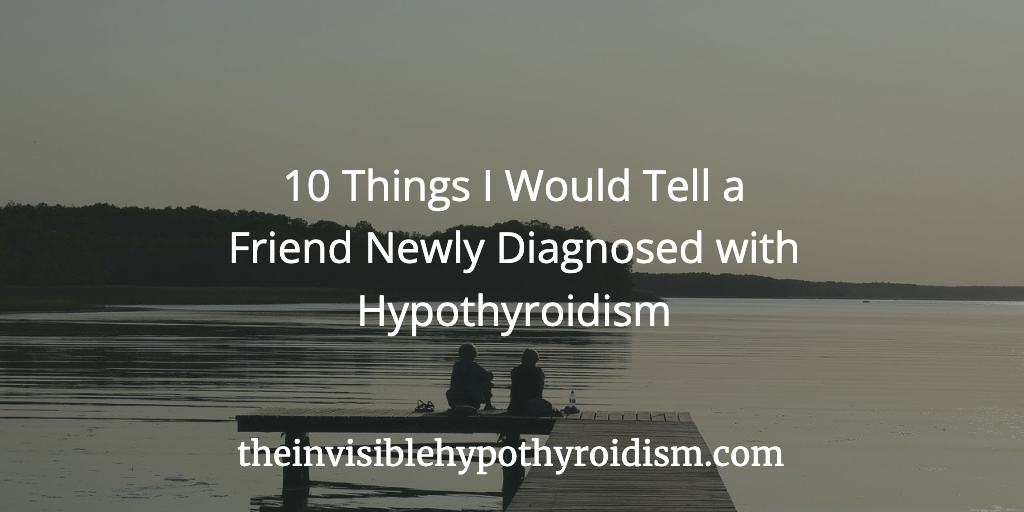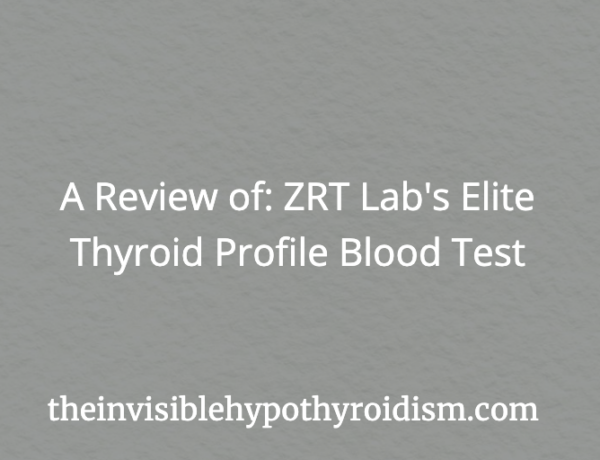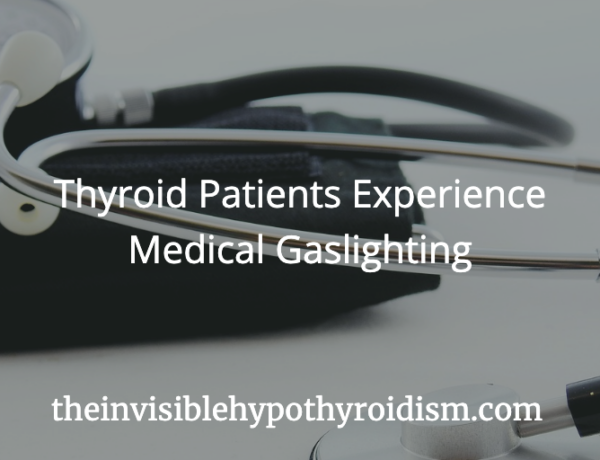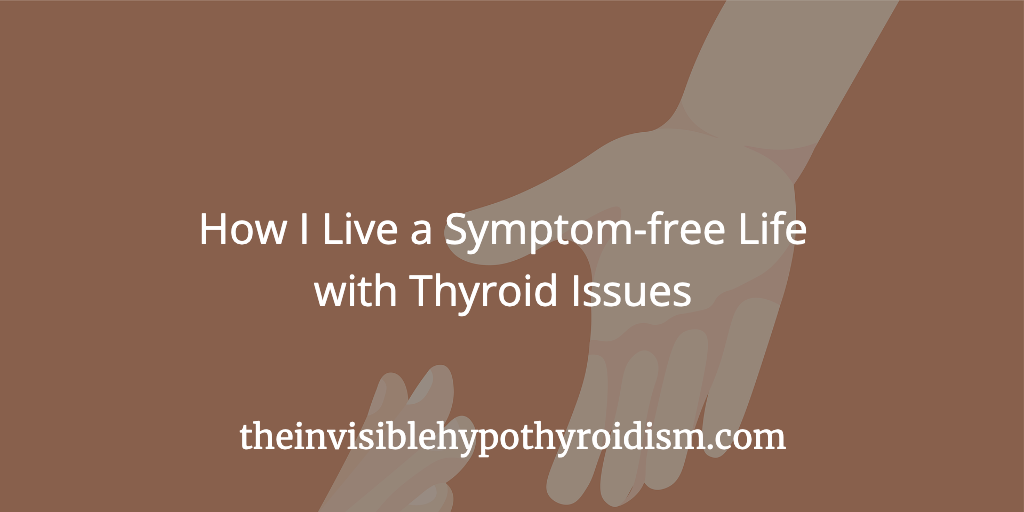Originally published on 12th July 2016 Last updated on 10th June 2024
Having been through the ups and downs of having hypothyroidism, I now feel comfortable talking about many aspects of it.
When people first find me and ask all the usual questions after diagnosis, I first send them the link to this page, which is full of lots of FAQs and answers, but I also tell them the essential things to know, below.
I hope this helps those of you who are just diagnosed. Please pass it on to friends and family who become diagnosed, so we can continue to help each other.
I also wrote the number 1 bestselling thyroid patient book: Be Your Own Thyroid Advocate, which is aimed at those newly diagnosed with hypothyroidism or just beginning to learn about it! So please do check it out!
10 Things I Would Tell a Friend Newly Diagnosed with Hypothyroidism…
1. All Those Symptoms and Separate Conditions You Have, Could Actually Be From Your Thyroid
Did you know that there are countless symptoms and related conditions of hypothyroidism?
Your fibromyalgia, chronic fatigue syndrome, acid reflux, low blood pressure and depression, to name just a few, could be from an untreated or non-optimally treated thyroid condition.
So once you get your thyroid levels optimal (note, this isn’t just ‘in range’), they may well go away or get better.
Read more about connected conditions here.
2. Your Thyroid Is Located in The Neck and Is Important for Many Bodily Functions and Processes
None of us really know where the thyroid gland is or what it does when we’re first diagnosed, but it is useful to know.
The thyroid gland is located in the neck and its main purpose is to produce thyroid hormones to ensure the metabolism is running properly. The metabolism’s job is to produce heat and fuel; heat to keep us warm and fuel to give us energy. So if we don’t have enough thyroid hormones, our metabolism won’t work properly and so can’t provide us with adequate heat and fuel.
Therefore, people with hypothyroidism can have a slow metabolism, with associated symptoms such as cold intolerance (from the lack of heat made), extreme tiredness and weight gain (from the lack of calories burned to make energy).
Once optimally treated, these should greatly improve or disappear though.
3. Make Sure Your Doctor Doesn’t Just Test TSH
This one a big one. TSH is inaccurate when used on its own, and so should be tested as part of the full thyroid panel.
TSH stands for ‘Thyroid Stimulating Hormone’ and is a hormone secreted by the pituitary gland. It serves as an average read out over the previous four to six weeks of your thyroid levels. However, it isn’t an actual thyroid hormone and so doesn’t tell us our actual thyroid hormone levels.
Many thyroid patients stay unwell because their doctor declares a normal TSH, yet their thyroid hormone levels Free T3 and T4 are below optimal.
It’s worth knowing that you can order full thyroid panels yourself from online laboratories too. Find a UK lab here and US lab here.
To get a full picture of what is going on, and thus, be medicated and treated as accurately as possible, you also need Free T3 and Free T4 testing and TPOAB and TGAB if possible as well. Read more about tests here.
4. There Is a Great, Supportive Community out There
So many people feel alone with thyroid disease. This condition can make you feel depressed, lonely and isolated. The huge impact it has on every aspect of our lives can be devastating, and those who do not have it often don’t understand this and underestimate it.
Therefore, you may benefit from reaching out to those who do understand, i.e. fellow thyroid patients. There are many online support groups and forums, full of people who understand what you’re experiencing, are supportive, helpful and share their experiences, as well as being there to listen when others need to rant about a tough thyroid day.
Read more about the benefits of an online support group here.
5. T4-Only Medicine, Such as Synthroid and Levothyroxine Are Not the Only Medication Options
Although many doctors won’t tell you, or do not know themselves, T4-only medication doesn’t work for all thyroid patients. Those it does not help may require T3 medication or NDT medication to feel better. This is most often due to conversion issues.
Although getting your thyroid medication dosage right can take months, if you still feel unwell after quite a while, it wouldn’t be a bad idea to explore this further and complete a full thyroid panel, testing Free T3 and T4 to check if you’d be better on another thyroid medication. Low Free T3 compared to Free T4 can indicate a conversion issue.
6. Pick up Books
There are many thyroid books out there that are very helpful.
Many are written by doctors, functional practitioners or thyroid advocates, and are a must-read for all thyroid patients. I review the books I read, and many have helped me to get better. They can be very empowering.
7. It’s Worth Researching About Adrenal Dysfunction
It has been estimated that up to 90% of us also have adrenal dysfunction (note: it is more accurately referred to as hypothalamic-pituitary axis dysfunction), so it’s worth exploring the signs and symptoms of this, so you can act to treat it as soon as possible. If your doctor won’t check your adrenals, you can very simply order testing yourself here.
For many people, adrenal symptoms end up being half the problem, and they can’t get better even on thyroid medication without working on their adrenal health as well.
8. Look into Hashimoto’s
Around 90% of us with hypothyroidism have the autoimmune disease Hashimoto’s Thyroiditis as the cause for our reduced thyroid hormone levels.
It’s often really helpful to confirm if we do indeed have Hashimoto’s, as certain things can help to keep it under control, and lowering antibodies (getting it in to remission) is often cited to help in symptoms such as brain fog and fatigue.
You need the tests TGAB and TPOAB to confirm if you have Hashimoto’s. Read more here and here.
Related: Why It’s Important to Know if You Have Hashimoto’s
9. It’s OK to Have Tough Days
Thyroid disease is often not easy to live with. It’s OK to struggle, it’s OK to admit that you can’t do as much as you used to. It’s OK to grieve.
Thyroid flare ups are also very real.
Try to get family, friends and work colleagues to understand that with this new diagnosis, you may struggle sometimes, be forgetful or not feel up to things, however you are not to blame. (See a book written for the loved ones of a thyroid patient here.)
Accept it, own it, respect it, and others will start to as well.
10. You Can Get Better
You may have read other peoples experiences online about how they never feel well again, and start to worry. I certainly did! But don’t let this depress you; you can be well again.
The points above will need to be considered and you’ll need to be your own thyroid advocate in order to get better, but it’s not all bad. Empower yourself and become educated on your health and push for answers. It won’t always be easy but you owe it to yourself.
There’s lots of other helpful info on this website for you to check-out when you feel up to it, too.
What would you tell a friend newly diagnosed with hypothyroidism? Let me know in the comments below.
You can click on the hyperlinks in the above post to learn more and see references to information given.







